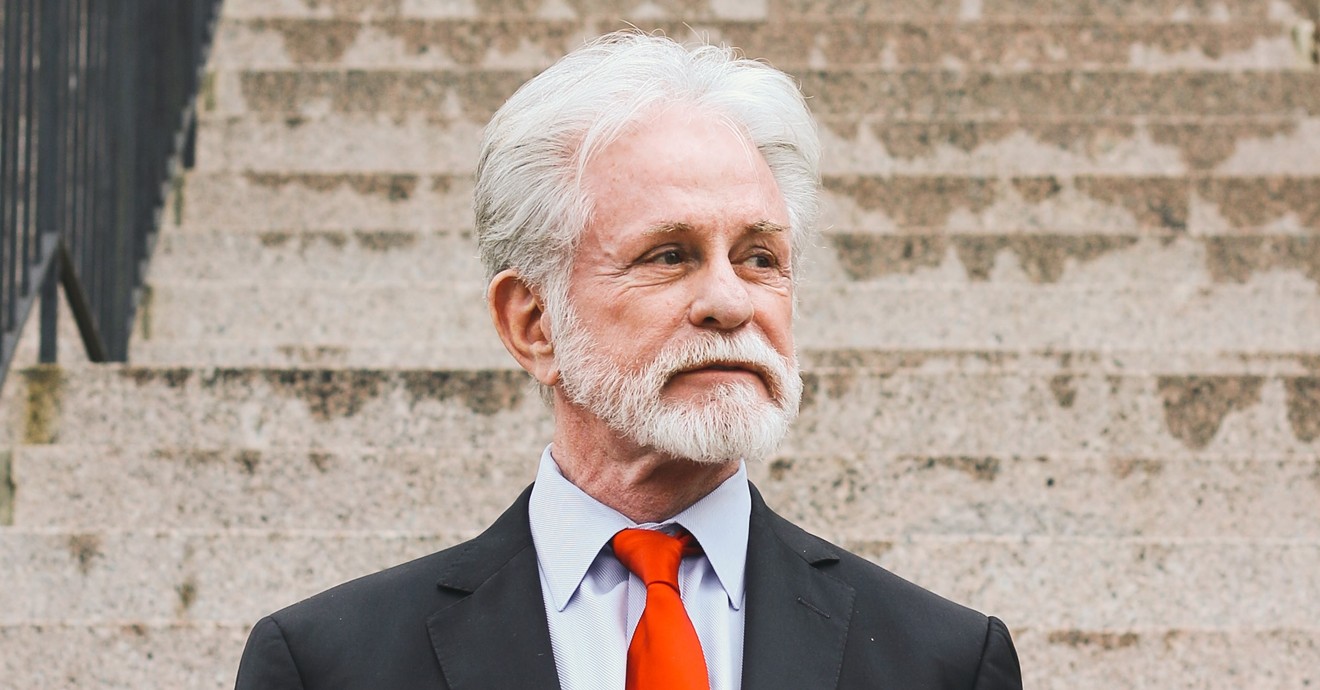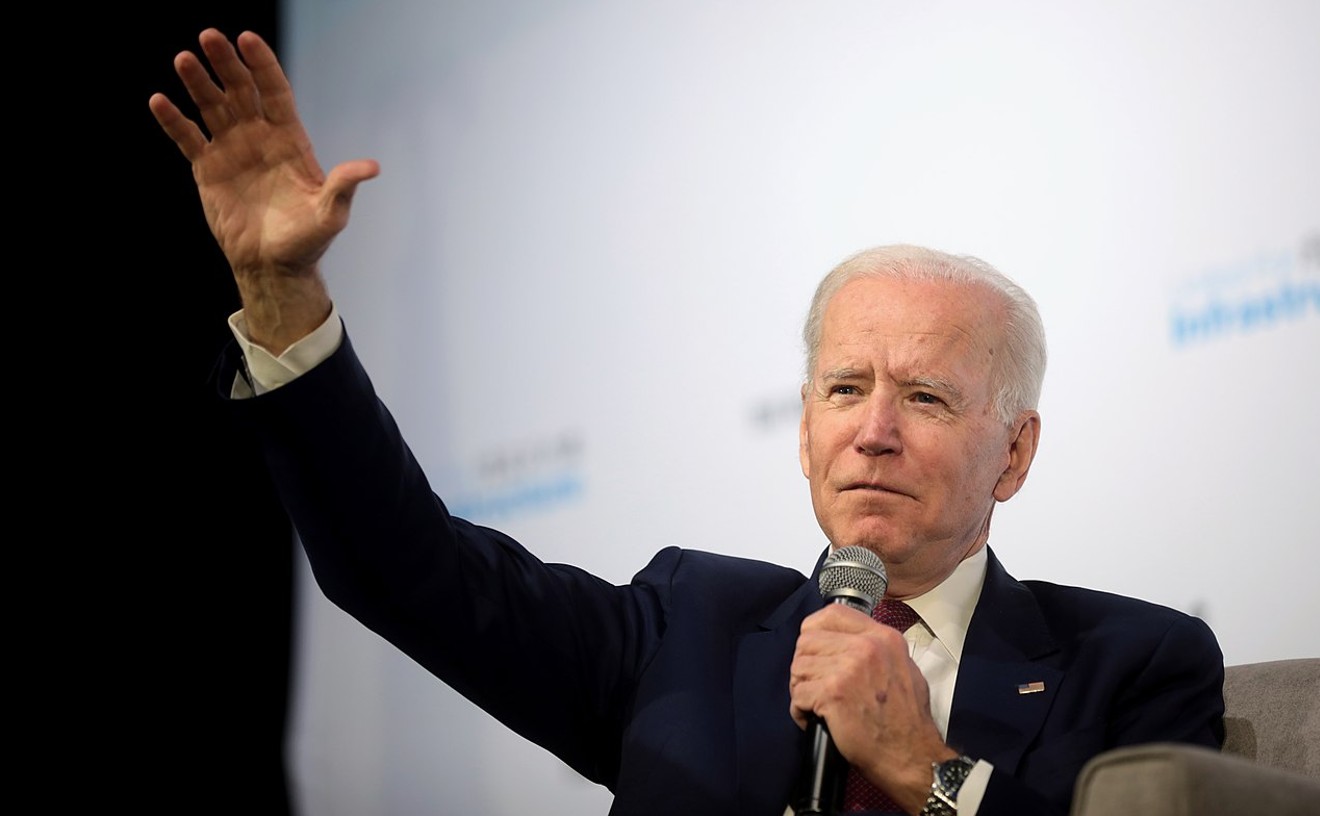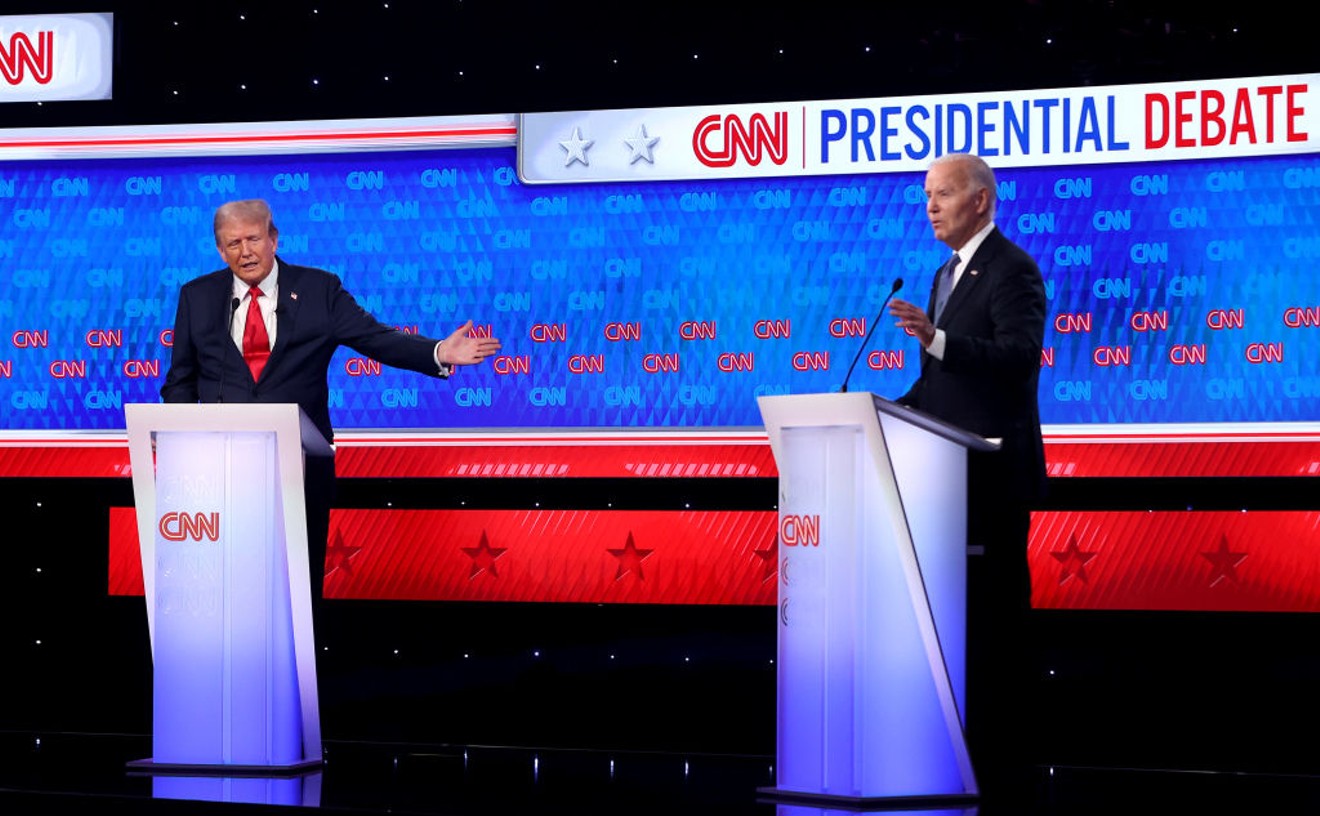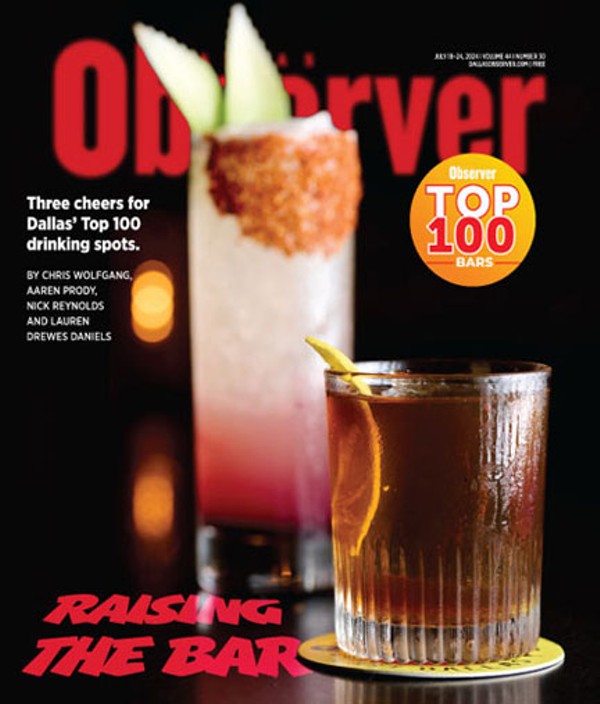But then I stumbled on The Confession Killer, a Netflix documentary about so-called serial killer Henry Lee Lucas, and I wondered how I could have forgotten. The very worst part of remembering the Lucas case for me was the forced recognition that “deep state” is not just a name.
It’s not just the government, either. The Lucas story, which was very much a Dallas story in the end, reminds me that the mainstream media can have deep-reaching dirty hands, as well.
Webster’s argument in his essay in the Times is that Trump crudely and unfairly maligned a great American institution when he called FBI agents “scum.” That part I still believe.
“I know firsthand the professionalism of the men and women of the F.B.I.,” Webster wrote. “The aspersions cast upon them by the president and my longtime friend, Attorney General William P. Barr, are troubling in the extreme.
“Calling F.B.I. professionals ‘scum,’ as the president did, is a slur against people who risk their lives to keep us safe. Mr. Barr’s charges of bias within the F.B.I., made without providing any evidence and in direct dispute of the findings of the nonpartisan inspector general, risk inflicting enduring damage on this critically important institution.”
I’m down with all that. But, thanks to Netflix, I can’t insist that anybody else — notably, Trump’s supporters — accept Webster’s words or my own bias at face value.
The Netflix series, directed by Robert Kenner and Taki Oldham, deals somewhat indirectly with an element of the Lucas case that was directly connected to my own life and experience, namely the rivalry between the Dallas Times Herald, where I worked, and what's now the A.H. Belo Corp., which still owns and operates The Dallas Morning News.
“Calling F.B.I. professionals ‘scum,’ as the president did, is a slur against people who risk their lives to keep us safe." — William H. Webster
tweet this
Lucas, who died of natural causes in prison at age 65 in 2001, confessed to more than 100 murders and was supposedly a strong suspect in 500 more. He was convicted and sentenced to death in one of those killings, but his execution was commuted by Texas Gov. George W. Bush after a Times Herald investigation proved Lucas was innocent of that murder.
The ultimate denouement of the entire Lucas story came in 1991 when a Waco civil jury slammed Belo with a $58 million libel verdict — at that time believed to be the largest libel award in American history. Belo’s WFAA Channel 8 television had broadcast a series of patently false stories accusing McLennan County District Attorney Vic Feazell of corruption. Feazell’s sin had been to publicly state doubts about the truthfulness of the great bulk of Lucas’ confessions.
By the time Feazell publicly questioned the Lucas confessions and the work of the Texas Rangers, the confessions already had been exposed as a travesty of lies by Times Herald reporters Hugh Aynesworth and Jim Henderson. The other night I laughed out loud when Henderson appeared on my TV screen in the wee hours saying something I had heard him say a million times before in person — that he does not find criminals to be interesting persons. And that’s exactly why Henderson and Aynesworth were able to see through the fabric of lies.
The Texas Rangers, a special investigative division of the Texas Department of Public Safety, had helped orchestrate the Lucas confessions with the help of the late Jim Boutwell, sheriff of Williamson County just north of Austin. Together they took credit for “clearing” or solving murders all over the United States by getting Lucas to confess to them.
There was never any physical evidence to tie Lucas to the murders, only his own improbably detail-rich confessions. The Rangers and Boutwell helped make the Lucas claims more credible by spinning an entire legend and mystique around him.
Instead of the gap-toothed, droop-eyed drifter he appeared to be on the surface, Lucas, in the words of Boutwell and the Rangers, became a monster worthy of great fiction, an ingenious fiend lurking beneath a clever disguise as a gap-toothed idiot.
Henderson and Aynesworth went with the gap-toothed idiot. They took a map of the United States, marker pens and push-pins and plotted Lucas’ alleged murders and timeline. As Henderson observes in the documentary, Henry Lee Lucas couldn’t have made it to that many places all over America on that tight a schedule had he been strapped to the nose of a guided missile.
And it got worse. Some details of the killings cited by Lucas were included in original police reports but later were corrected because they were found to be in error. But Lucas confessed to those cases before the errors were found. In some, Lucas confessed to mistaken facts in the original police reports.
What emerges clearly in this new documentary is what Aynesworth and Henderson proved plainly in their stories almost 40 years ago: Boutwell and the Rangers were feeding Lucas the facts he needed to make his confessions convincing. Lucas was confessing to dozens and dozens of murders he had nothing to do with and would have known nothing about had he not been coached.
Why would he have confessed to murders he didn’t commit? The documentary offers a few esoteric-sounding theories about things like “factitious disorder.” I don’t know how convincing I found all that. If there is such a thing, it’s not a bar to becoming president. I’m more likely to go with Aynesworth and Henderson’s theory based on the gap-toothed idiot.
In fact, Henry Lee Lucas himself would not be all that interesting, certainly not worth a well-wrought five-part documentary series, were it not for the deep-state story as exposed in the Feazell libel suit. Feazell was a young, ambitious district attorney in Waco when he stubbed his toe on the Lucas case and began digging deeper.

The Texas Rangers do not come out looking so good in the new Netflix documentary about so-called serial killer Henry Lee Lucas.
The Lyda Hill Texas Collection of Photographs in Carol M. Highsmith's America Project, Library of Congress, Prints and Photographs Division
Adams had arrived at the DPS in 1980 already bearing a reputation for dark arts. In his previous job as second-in-command at the FBI under J. Edgar Hoover, Adams had been the focus of scathing cross-examination by the U.S. Senate Select Committee on Intelligence chaired by Idaho Sen. Frank Church."I’m a school teacher with a college degree. I know the big words.” — Vic Feazell libel juror
tweet this
The Church committee called Adams and other top FBI officials to task for the FBI’s egregious abuses of power in a top secret program called COINTELPRO, in which the FBI had attempted to persuade Martin Luther King Jr. to either drop out of public life or kill himself. In his testimony, Adams blamed it all on Hoover, who had been dead for three years.
After Feazell questioned the truthfulness of Adams’ Texas Rangers, WFAA began its series of stories accusing Feazell of taking bribes. In 1986, the FBI and Justice Department presented the WFAA stories to a federal grand jury as evidence. When Feazell was arrested on a Waco parking lot, WFAA was there waiting with multiple camera crews.
He was tried on federal bribery charges. A number of Waco criminal lawyers testified they had paid Feazell bribes. The jury acquitted him.
Jurors told reporters after the trial that they had found the FBI’s evidence unbelievable. Later in the libel trial, it emerged that the IRS had launched tax probes of the lawyers who accused Feazell prior to their agreements to testify against him in the criminal trial.
The huge libel verdict against WFAA, later settled for an undisclosed amount, was the civil jury’s own clear message. Those jurors hadn’t believed any of the accusations, either. They saw WFAA and Belo as malevolent co-conspirators in a government plot to convict an innocent man who had dared tell the truth.
Here is what really sticks with me from all of this. The Times Herald, which ceased publication in 1991, told the truth about Henry Lee Lucas. The Herald told the truth about the Texas Rangers and Sheriff Jim Boutwell. But in and of itself and by its own efforts, the Herald made no difference. It didn’t stop anybody from anything. It went out of business.
In spite of the stories in the Herald, the Rangers, with their deep reach into federal law enforcement, were able to orchestrate a vast complicated vendetta against Feazell that involved the FBI, the IRS and the Justice Department. They also were able to reach into establishment media and persuade a major publishing and broadcast company to help do their dirty work for them.
Only American juries put a stop to it. Regular American citizens sitting in jury boxes spotted the immense web of lies against Feazell and called those lies for what they were.
In a piece about it for D Magazine in 1991, Carlton Stowers quoted a person who been a juror in the civil trial talking about one of the Belo lawyers, John McElhaney:
“In his opening statement,” the former juror told Stowers, “Mr. McElhaney stood there and talked down to us, saying that they were going to be using some big words during the trial but would carefully explain them to us. I’m a school teacher with a college degree. I know the big words.”
When I read William Webster’s words lauding the honorable history of the FBI and the honest federal employees who work there, I believed what he said, and I still do. My own bias here is obvious. Ask me to place my bets one way or the other, I’m still going to put my money on the FBI being honest, the press being diligent and Trump being a fool.
But I’m glad I stumbled on the Netflix series in my insomniac wanderings. It reminded me of something I had put aside, for whatever reason. I’m still going to bet on the FBI and the press. But I may not bet the entire farm.












